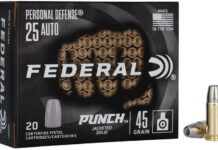Ready to solemnly swear that you are not up to no good, you promise? After less than 3 years the Form 4473 is changing, again.
The BSCA and NDNA have added more lines of screening for the Form 4473 (the paperwork you do to purchase or pick up a firearm from an FFL) and are adding language against straw purchases and other prohibited individuals.
If you, an oh so intelligent and critical thinking individual, ask yourself and everyone else around you “What happens if they just lie?” the answer is… nothing. They must get caught lying to trigger the felony charge that can come with doing so, and that given the number or prosecutions of making a false statement on a Form 4473 is basically an add-on charge for padding out a prosecution sheet from a larger event.
The BSCA and NDNA have firmed up the definition of straw purchase though, and that has been something we needed. The language upon the new form and referencing the statute itself may come into confusing conflict with marking accurate answers on the form.
They are also now differentiating between within and outside city limits, this is in order to direct inquiry to the proper jurisdiction if further scrutiny is warranted during a background check. This is most often going to be used in conjunction with the deeper required checks on young people and under the NDNA to notify law enforcement of a denial.
Those notifications are only supposed to be for denials, however instances have been seen in the past and will undoubtedly occur under the new law where delays, and not denials, are referred to law enforcement. That improper notification chain will likely have two distinct negative effects, the false notifications will make local law enforcement more apathetic toward the FBI notifications as being without value and if it results in a law enforcement contact of the individual, especially if they passed their check after the delay (like I do, I have an FFL/SOT) it is likely to further erode trust and community relations by increasing unneeded friction between lawfully acting citizens and the police.
In short. The new Form 4473 is likely to cause confusion in buyers, problems in notifications, and increase rather than decrease community friction points. These forms become mandatory for use April 1, 2023 however FFLs are strongly encouraged to use them starting now.
Per ATF,
Due to new statutory requirements set forth in both the NICS Denial Notification Act and the Bipartisan Safer Community Act (BSCA), and to reflect the implementation of ATF Final Rule 2021R-05F, ATF Form 4473 has been revised. Because the new statutory requirements are designed to enhance public safety, and to ensure compliance with these provisions and Final Rule 2021R-05F, the Office of Management and Budget has provided emergency authorization to ATF to immediately use the revised Form 4473. ATF will be publishing the Revised Form for Notice and Comment Review in the coming months.
ATF encourages all federal firearms licensees (FFLs) to begin using the Revised Form immediately. The Revised Form is available on ATF’s website, and can be downloaded and printed for immediate use. Please note that the entire Form, including instructions, must be printed, and stored together. Hard copies of the Revised Form will be available through the ATF Distribution Center beginning February 1, 2023. The ATF eForm 4473 application is also being revised and notification will be sent when it is ready for use.



